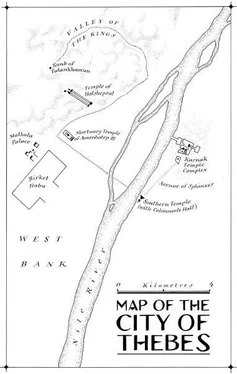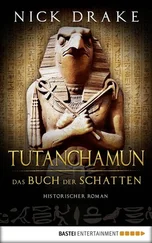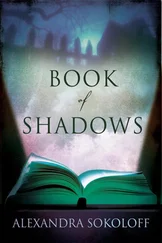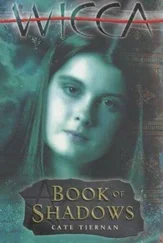Nick Drake - Tutankhamun - The Book of Shadows
Здесь есть возможность читать онлайн «Nick Drake - Tutankhamun - The Book of Shadows» весь текст электронной книги совершенно бесплатно (целиком полную версию без сокращений). В некоторых случаях можно слушать аудио, скачать через торрент в формате fb2 и присутствует краткое содержание. Жанр: Исторический детектив, на английском языке. Описание произведения, (предисловие) а так же отзывы посетителей доступны на портале библиотеки ЛибКат.
- Название:Tutankhamun: The Book of Shadows
- Автор:
- Жанр:
- Год:неизвестен
- ISBN:нет данных
- Рейтинг книги:4 / 5. Голосов: 1
-
Избранное:Добавить в избранное
- Отзывы:
-
Ваша оценка:
- 80
- 1
- 2
- 3
- 4
- 5
Tutankhamun: The Book of Shadows: краткое содержание, описание и аннотация
Предлагаем к чтению аннотацию, описание, краткое содержание или предисловие (зависит от того, что написал сам автор книги «Tutankhamun: The Book of Shadows»). Если вы не нашли необходимую информацию о книге — напишите в комментариях, мы постараемся отыскать её.
Tutankhamun: The Book of Shadows — читать онлайн бесплатно полную книгу (весь текст) целиком
Ниже представлен текст книги, разбитый по страницам. Система сохранения места последней прочитанной страницы, позволяет с удобством читать онлайн бесплатно книгу «Tutankhamun: The Book of Shadows», без необходимости каждый раз заново искать на чём Вы остановились. Поставьте закладку, и сможете в любой момент перейти на страницу, на которой закончили чтение.
Интервал:
Закладка:
‘And what’s inside the temple?’
‘A mystery within a mystery within a mystery,’ he said.
She squinted at him, annoyed.
‘That doesn’t mean anything at all,’ she commented, correctly enough.
He smiled.
‘Inside there is an extraordinary new construction, the Colonnade Hall. It has just been completed after many years of labour. There is nothing else like it upon the earth. Its columns reach to the sky, and they are all carved and painted with wonderful images of the King making offerings; and the roof is painted with uncountable gold stars around the Goddess Nut. Beyond is the vast Sun Court, surrounded by many tall, slender columns. And beyond that you must pass through portal after portal, as the floors get higher, and the ceilings lower, and the shadows darker and darker-and these all lead to the heart of everything: the closed shrine of the God, where he is woken at dawn, and fed with the finest of foods, and clothed in the best of linens, and put back to sleep at night. But only a very few priests, and the King himself, are allowed to enter there, and no one who does can ever speak of what he has witnessed. And you must never speak of what I have just told you. For this is a great secret. And great secrets bring with them great responsibilities.’ He stared at her sternly.
‘I want to see it.’ She grinned her clever grin.
‘You never will,’ said Sekhmet suddenly. ‘You’re just a girl.’
Nakht was just thinking about how to respond to that when trumpets blasted out a deafening fanfare; at this signal the ranks of priests knelt down as one in the perfect dust, and the soldiers stood tightly to attention, their spearheads and arrowheads glittering in the unforgiving sun. Then, from out of the shadows of the vast enclosure wall, two small figures appeared, seated upon thrones carried by officials, and surrounded by men of the offices and their assistants. The moment they moved from the shadows to the sun, their robes and high crowns caught the powerful light, and they shone dazzlingly bright. An absolute hush descended upon the city. Even the birds were silenced. The most important moment of the festival’s ritual had commenced.
But nothing happened for a few moments, as if they were too early for a party, and no one had quite thought what to do to keep them entertained. The royal sunshade holders produced sunshades and protected the royal figures within circles of shade. Then a roar up ahead announced the God in his gold shrine, borne on the shoulders of his bearers, as the procession slowly and laboriously turned the corner, and appeared in a flash of light. The royal figures waited, seated like dolls, costumed, stiff and small.
Preceded by high-ranking priests chanting prayers and spells, surrounded by acrobats and musicians, and followed by a white sacrificial bull, the God approached. Finally the King and Queen stood up: Tutankhamun, the Living Image of Amun, and next to him Ankhesenamun.
‘She looks frightened.’
I looked down at Sekhmet, then back at the Queen. My daughter was right. Under the paraphernalia of power, the crown and the robes, the Queen looked nervous.
From the corner of my eye I saw, from out of the dense crowd standing under their sunshades against the intense light of the sun, several figures raised up by other figures as if on the joined hands of acrobats, and then a series of swift movements, arms casting something-small, dark balls that arced high in the air, over the heads of the crowd, on an inexorable trajectory towards the standing figures of the King and Queen. Time seemed to stretch and slow, as it does in the last moments before an accident.
A series of bright splashes of red exploded suddenly across the immaculate dust, and over the King and Queen’s robes. The King staggered backwards and slumped into the throne. The silence of profound shock suspended everything for a long moment. And then the world exploded into a thousand fragments of noise, action and screaming.
I feared Tutankhamun was dead; but he slowly raised his hands in horror or disgust, reluctant to touch the red stuff that ran down his royal robes into a puddle in the dust. Blood? Yes, but not the King’s, for there was too much of it too quickly. The God’s shrine now wavered, as the carrying priests, uncertain how to respond, waited for instructions, which did not come. Ankhesenamun was looking about in confusion; then as if waking from a slow dream, the orders of the priests and the army suddenly broke ranks.
I became aware of the girls screaming and crying, of Thuyu huddling into me, of Tanefert holding the other girls to herself, and of Nakht’s quick glance communicating his shock and astonishment at this sacrilegious act. On the roof terrace, men and women were turning to each other, their hands raised to their mouths, or appealing to the heavens for comfort in this moment of disaster. A tumult rose beneath us as the crowd began to panic, turning in confusion, pushing against the ranks of Medjay guards, trying to spill out on to the Avenue of Sphinxes, where they stampeded away from the scene of the crime. The Medjay guards responded by piling into the crowd, hitting anyone they could reach with their batons, dragging innocent bystanders by the hair, tackling men and women to the ground-where some were trampled by others-and herding as many people as they could capture together.
I looked back down to the place the balls had been thrown from, and noticed a young woman’s face, tense with trepidation; I was sure she had been one of the people who had thrown the balls; I watched as she looked around, assessing whether she had been seen, before turning purposefully away in the middle of a group of young men who seemed to gather about her as if in protection. Something occurred to her, and she looked up and saw me watching her. She held my gaze for a moment and then hid herself under a sunshade, hoping to disappear into the pandemonium of the streets. But I saw a group of Medjay guards rounding up everyone they could catch, like fishermen, and she was trapped, along with many others.
The King and the Queen were already being carted with indecent haste back into the safety of the temple walls, followed by the hidden God in his gold shrine and the crowds of dignitaries who ducked and scurried, alert to their own anxieties. Then they all vanished through the temple gates, leaving behind an unprecedented pandemonium at the heart of the city. A few bladders of blood-weapons suddenly as powerful as the most sophisticated bow and the finest, truest arrow-had changed everything.
I looked at the solid ground far below me, crowded with people, swirling in eddies of panic, and then for an instant what seemed solid changed to an abyss of dark shadows, and within it I saw the serpent of chaos and destruction, that lies coiled in secret beneath our feet, open its golden eyes.
4
I left the family with instructions to wait in Nakht’s house until it was safe for them to return home under the care of his household guards. Then I took Thoth with me, and stepped carefully out of the doorway into the street. Medjay officers swept up the last of the crowds, taking prisoner and binding any they suspected of wrongdoing. Shouts and cries came distantly through the thick, smoky air. The Avenue seemed like a vast papyrus scroll on which the true history of what had just happened was now recorded on the trampled sand, scribbled with the scuffed signs of footprints as people had fled, abandoning thousands of sandals. Litter drifted pointlessly. Gusts of hot air went around in angry circles, and then died out in a flutter of dust. Little groups gathered around the dead and injured, weeping and crying out to the Gods. The detritus of all the festival flowers, smeared and crushed, made an inadequate propitiatory offering to the god of this havoc.
Читать дальшеИнтервал:
Закладка:
Похожие книги на «Tutankhamun: The Book of Shadows»
Представляем Вашему вниманию похожие книги на «Tutankhamun: The Book of Shadows» списком для выбора. Мы отобрали схожую по названию и смыслу литературу в надежде предоставить читателям больше вариантов отыскать новые, интересные, ещё непрочитанные произведения.
Обсуждение, отзывы о книге «Tutankhamun: The Book of Shadows» и просто собственные мнения читателей. Оставьте ваши комментарии, напишите, что Вы думаете о произведении, его смысле или главных героях. Укажите что конкретно понравилось, а что нет, и почему Вы так считаете.











